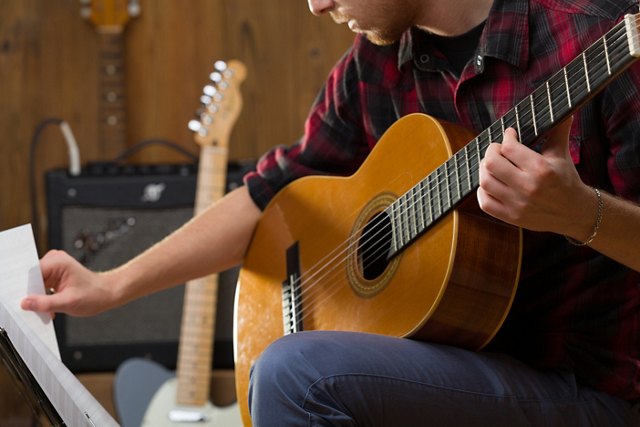9 Instrumental Guidelines for Practicing Music at Home
Whether you’re a certified guitar god, an up-and-coming jazz singer or a classically trained pianist about to break onto the national stage, there’s no doubt about it – playing music is one of the most exhilarating and fulfilling pastimes on the planet. But perfecting your art can be a challenge when your apartment practice sessions aren’t exactly music to your neighbors’ ears.
If this strikes a chord with you, you’re in luck. After interviewing some real-life musicians, we’ve uncovered the best tips for practicing music at home without disturbing your fellow apartment-dwellers. Fine-tune your jam session strategy now with noise reducing advice that includes:
- Set expectations with your neighbors. Soon after you move in — or whenever you gain a new next-door neighbor — be sure to introduce yourself and tell them about your hobbies. If you keep an open line of communication, your neighbors are more likely to come to you directly — and in a friendly manner — if your noise level gets too high. That’s much better than calling management or filing an official complaint with the city.
- Use headphones or a mute. This is one of the simplest and most effective ways to nip the noise problem in the bud. If you’re a brass player but don’t like the way that mutes make your instrument sound, try this electronic mute that feeds into headphones.
- Invest in a practice drum kit. Practice pads might not sound much like traditional drum sets, but they allow you to hone your skills without the slightest chance of getting on your neighbors’ nerves. Believe us – when you make your debut at the hot new rock venue around the corner, no one will have a clue that you weren’t using the real deal during practice.
- Be mindful of time and place. If you’re not a fan of lowering the volume, try to schedule practice sessions when your neighbors aren’t at home. If this isn’t possible, hold your jam session in a room that doesn’t share a wall with the adjacent apartment — and fill the space with lots of carpet and upholstered furniture to absorb as many sound waves as possible. Be cognizant of the “quiet hours” and ordinances in your apartment community and city so that you aren’t breaking any rules that could put an end to the music.
- Focus on the bass. The lower the sound, the easier it travels. If you use a bass amp, subwoofer or kick drum, put extra towels, foam pads, pillows, blankets, thick rugs or carpet underneath to dampen the sound and reduce annoying vibrations. You can also put amps and subwoofers on top of cinder blocks to help separate your downstairs neighbors from the noise.
- Go acoustic. A lot of people think that Bob Dylan was more of a force before he went electric. Who says the same isn’t true of you and your bandmates?
- Purchase a draft stopper. Prevent noise from escaping through your front door with a draft stopper. They’re inexpensive and easy to install, and they’ll help you save on your energy bill by keeping cold air out of your apartment during the winter.
- Find an apartment with a detached garage. Think that garages are only for grunge rockers? Not so fast. Garages are a great solution for any musician who wants to turn it up to 11 without disturbing the peace. Greystar is proud to offer detached garages at a number of our apartment communities across the country, and the cost can be quite reasonable, especially if you’re splitting the bill with your bandmates.
- Get a practice room/rent your community’s clubhouse. For those on-off times when none of the above options are feasible, get a room! Depending on where you live, you may be able to rent or put a deposit down on one of your community’s public spaces — a clubhouse or lounge area for instance. Check with your management team to see if that is feasible. If it’s not, practice rooms at rehearsal studios may be available at hourly rates between $10 and $60, with higher-priced rooms being larger in size and featuring more AV capabilities. Some studios also offer monthly rentals that you can keep to yourself or share with other musicians to save money.
Bonus Tip: Check with your community staff to find out about community-sponsored resident events. It’s a great chance to meet new friends and learn of others who may share a passion for music.
So whether you’re a rock band, indie ensemble, western swing troupe or orchestra member fine-tuning your solo, there’s no reason why your apartment neighbors should have to yell “stop the music” once you scale these suggestions to your individual needs.



